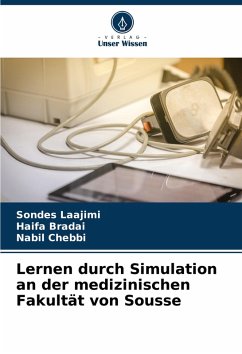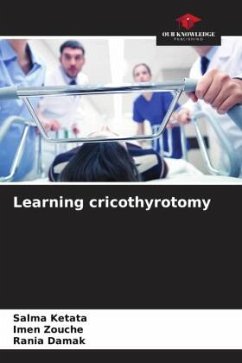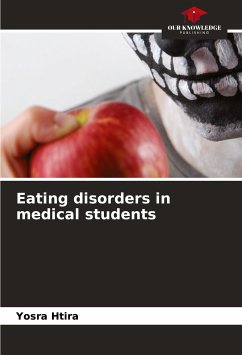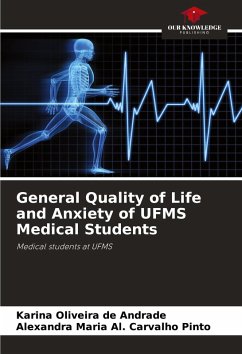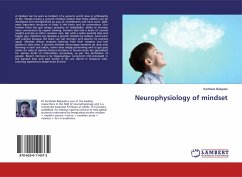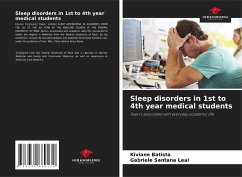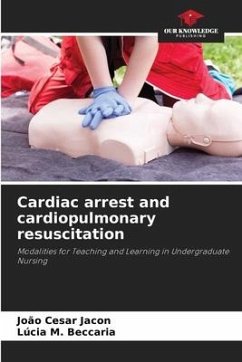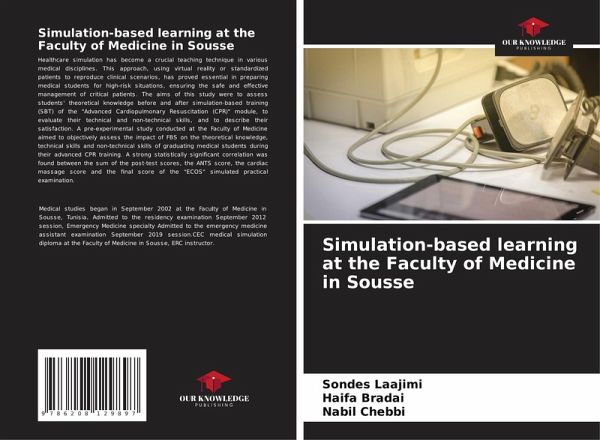
Simulation-based learning at the Faculty of Medicine in Sousse
Versandkostenfrei!
Versandfertig in 6-10 Tagen
29,99 €
inkl. MwSt.

PAYBACK Punkte
15 °P sammeln!
Healthcare simulation has become a crucial teaching technique in various medical disciplines. This approach, using virtual reality or standardized patients to reproduce clinical scenarios, has proved essential in preparing medical students for high-risk situations, ensuring the safe and effective management of critical patients. The aims of this study were to assess students' theoretical knowledge before and after simulation-based training (SBT) of the "Advanced Cardiopulmonary Resuscitation (CPR)" module, to evaluate their technical and non-technical skills, and to describe their satisfaction...
Healthcare simulation has become a crucial teaching technique in various medical disciplines. This approach, using virtual reality or standardized patients to reproduce clinical scenarios, has proved essential in preparing medical students for high-risk situations, ensuring the safe and effective management of critical patients. The aims of this study were to assess students' theoretical knowledge before and after simulation-based training (SBT) of the "Advanced Cardiopulmonary Resuscitation (CPR)" module, to evaluate their technical and non-technical skills, and to describe their satisfaction. A pre-experimental study conducted at the Faculty of Medicine aimed to objectively assess the impact of FBS on the theoretical knowledge, technical skills and non-technical skills of graduating medical students during their advanced CPR training. A strong statistically significant correlation was found between the sum of the post-test scores, the ANTS score, the cardiac massage score and the final score of the "ECOS" simulated practical examination.






